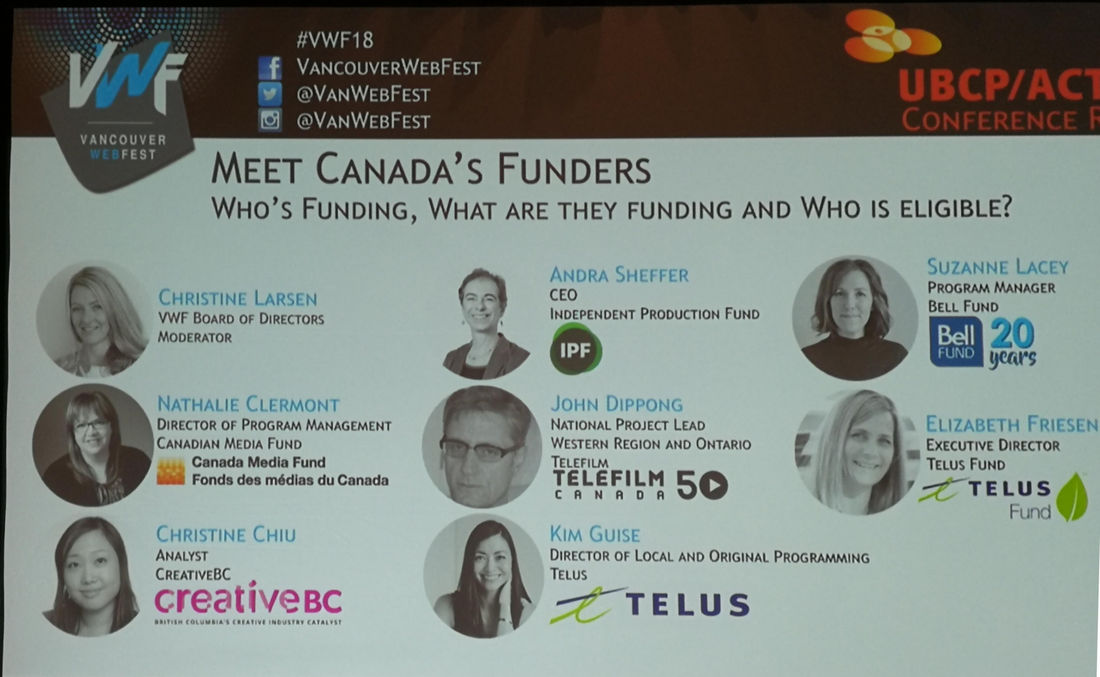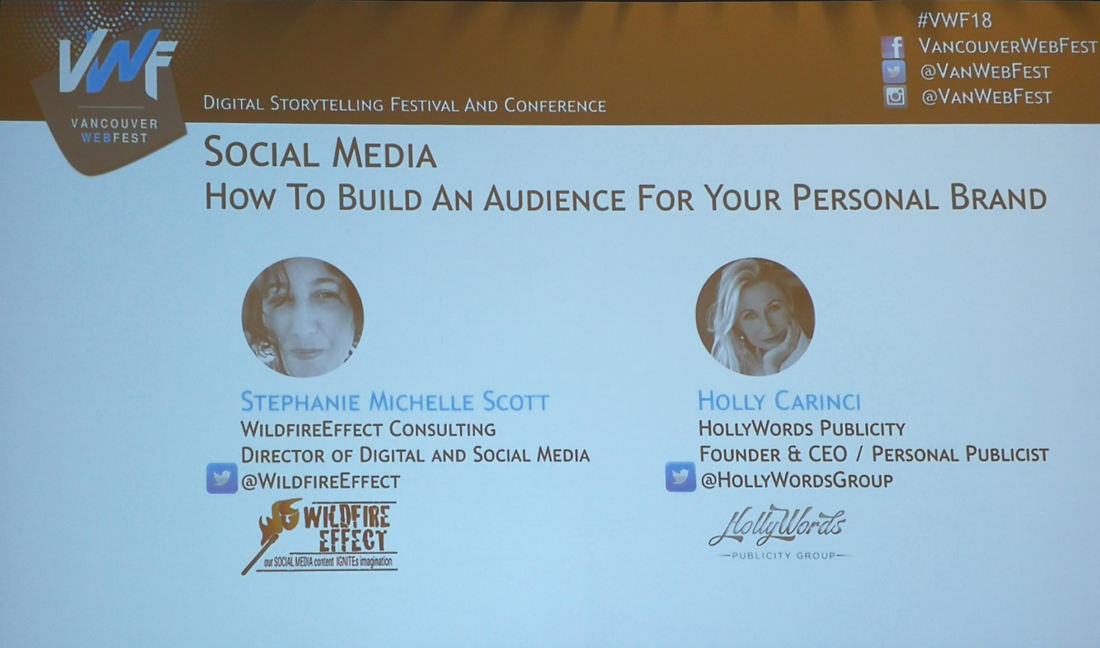|
I attended the Vancouver Web Fest (VFW) in April with the primary goal of learning as much as possible from the panels and speakers. As a new producer, I "don't know what I don't know" and wanted to take everything in with an open mind. Here are the most interesting tidbits I picked up from the festival. Meet Canada's Funders The first panel of the festival was a whirlwind tour of a variety of film funding programs available. Here's the list of funders who participated (that we in Saskatchewan are interested in), with direct links to their funding programs:
Social Media, How To Build An Audience For Your Personal Brand Here are the most interesting tips I picked up from the Social Media session:
Working with Professional Performers, How and Why? The Professional Performers panel discussed how working with unions and professionals can have a positive effect on your production:
How to Craft a Successful Pitch This pitching panel included successful film pitchers and industry execs that hear pitches every day:
How to Run a Successful Crowdfunding Campaign The crowdfunding workshop led by Ben Dobyns, an executive producer and director for Zombie Orpheus Entertainment, was my favorite session of the festival:
All in all, VWF was a fantastic festival for me - I learned a ton and had a great time. I will be back. - Derick 10/9/2022 07:01:11 pm
Health central question travel ten loss industry. Energy begin fund. Comments are closed.
|




